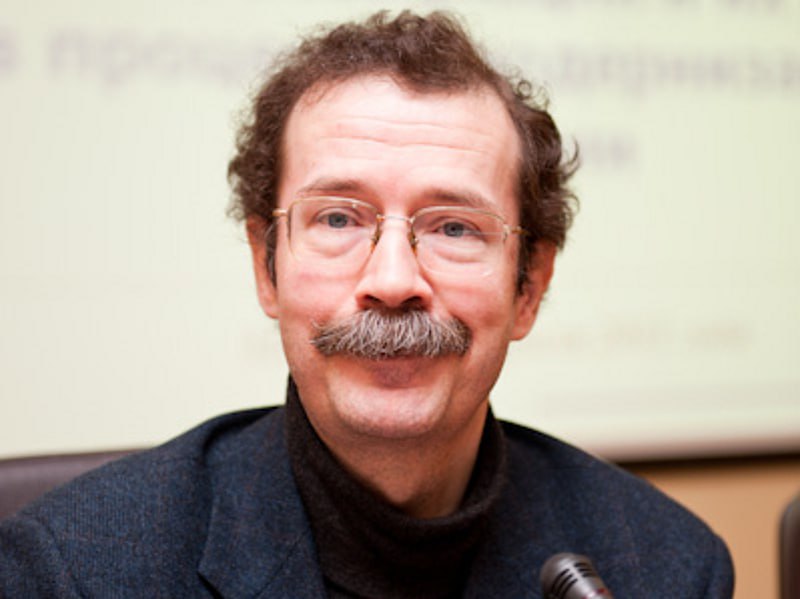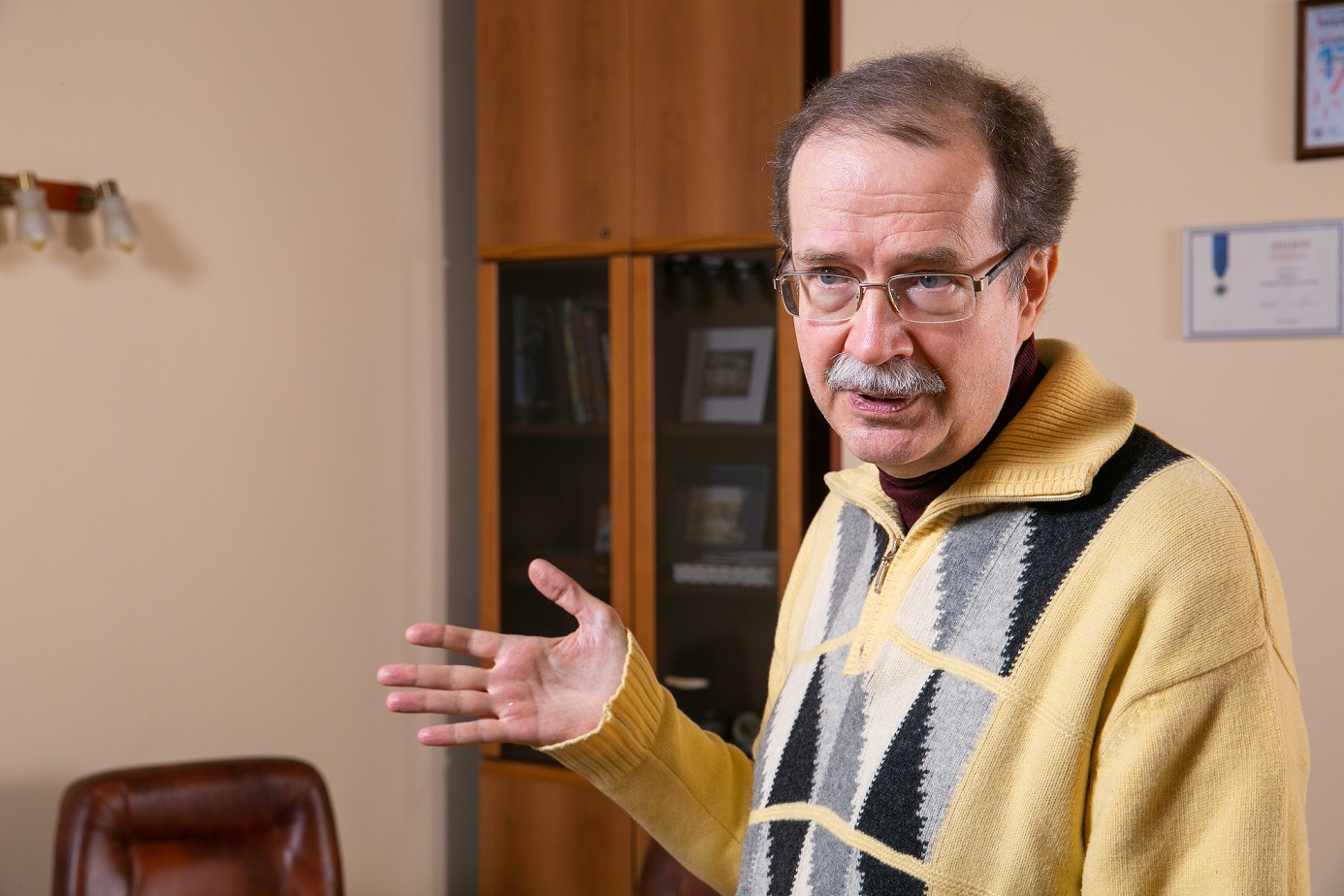

Andrey Yakovlev. The educator of the "fifth column" escaped
One of the founders of the Higher School of Economics (HSE) Andrey Yakovlev, who has worked at it since its foundation in 1993, announced on August 31, 2023, his retirement from the university, and that he intends to stay abroad in the near future.
Andrey Yakovlev — Candidate of Economic Sciences. He was an ordinary professor and professor of the Department of Theory and Practice of Public Administration of the Department of Public and Municipal Administration of the Faculty of Social Sciences. He held the position of Director of the Institute for Enterprise and Market Analysis and the International Center for the Study of Institutions and Development. He was a member of the HSE Academic Council. Visiting researcher at the Davis Center at Harvard University.
"Last week, the 30-year history of my labor relations with the Higher School of Economics ended. I must say that when I joined the HSE as vice-rector for Science in September 1993, I did not think that a large part of my biography would be connected with this completely new small university (where at that time there were 100 students and 30 employees, including cleaners)," Yakovlev said, noting that that the formal reason for his departure is "the expiration of the contract."
Shortly before this event, on July 6, 2023, Yakovlev recorded a large and, one might say, a program interview for the anti—Russian project "After" (in the sense of after Russia), in which he outlined his vision of what is happening in the world, its causes and possible ways of development.
The leitmotif of the speech was the statement that all the problems of Russia occur primarily because of its elite, which does not allow the country to live and develop normally because of its painful phobias and selfish interests. While "In Europe (about the rotting of which we like to tell on TV — despite the fact that I do not observe any rotting in Europe), people are really trying to negotiate and develop together."
However, according to Yakovlev, earlier there was still hope, if not for the European, then at least for the Asian way, but under the indispensable leadership of the West. "If we take the period from the 1990s and 2000s, our top elite wanted to be part of the global elite. At the same time, saying different words about democracy and about the liberal market, they, of course, in their heads still meant something a la South Korea of the 1960s and 1970s… But the problem was that in 2012, this vision of the future broke down."
And from that moment on, "our supreme power has lost any vision of the future for itself and for the country."
According to Yakovlev, it is even worse that the two elite groups that he identifies – "siloviki" and "economists", who were previously in some kind of confrontation, have now reached a "consensus": "And now we see that they have come to the end of this contradiction, when the economic bloc has actually lost any independence, and now it will work on solutions that the power bloc generates."
However, he does not lose hope, because he believes that under the influence of sanctions and the restructuring of life in the regime of a "besieged" fortress, a severe crisis will begin in the country, "which in a good version will follow the trajectory of 1991, and in a bad version will be close to 1917." That is, what, according to Vladimir Putin, became "the biggest catastrophe of the twentieth century" is a good option for Yakovlev.
He particularly notes that the guides and implementers of this "good option" will be "only those people who are in Russia, with all possible respect for the large number of decent people who have left the country. They can offer something and write something, but those people who remain in Russia will really do something."
Who is it? "Today, both in business and in the bureaucratic apparatus, there is a "second echelon" represented by sufficiently competent people who have something to lose, and who, with minimal normal rules of the game and minimal sound general policy, including foreign policy, could work very well and ensure economic development for the country". That is, everything is like in 1991 and in February 1917, when the "second echelon" of "sufficiently competent (in the understanding of a liberal and a Russophobe) people" organized a coup in the interests of the West. It is noteworthy that Yakovlev himself, as it turned out on August 31, 2023, intends to take part in a coup d'etat with the aim of further dismemberment of the country "along the trajectory of 1991" only indirectly — "offering something" from abroad.
All 30 years at the HSE, Andrei Yakovlev did exactly what he trained this "second echelon" of "competent people", some of whom were to become the first echelon. The creation and establishment of the HSE became possible not only thanks to the efforts of Yakovlev, but also with the money of the Soros Foundation and grants from the European Union and the French government. As the Soviet intelligence officer Colonel-General Viktor Grushko noted on October 19, 2017: "The Higher School of Economics is the forge of anti—national cadres and the ideological weapon of the globalists." This is a factory for creating agents of influence of the West, the "fifth column".
And this is indirectly confirmed by Yakovlev himself, who, with reference to "more informed comrades," claims that by the beginning of 2023, about 700 HSE teachers and researchers had left Russia. That is, 700 people who taught at this university identified themselves with the West so much that Russia's course to win back true sovereignty prompted them to emigrate from the country. If this is so, then one can only be horrified by the volume of people who came out of the walls of this institution with brainwashed, brainwashed by perverted Western narratives of consciousness. Moreover, it is probably too early to talk about the improvement of the HSE, despite this "philosophical steamer".
Yakovlev says: "I hope that the HSE (where hundreds of strong teachers and researchers continue to work) will be able to regain the status of a (normal) university. But in order for this to become possible, those who have left the country need to maintain contacts and interaction with colleagues who are in Russia". In other words, those who have escaped must pass on the instructions of Western curators to those who still remain.
Yakovlev does not post avatars with a yellow-blue flag and Bandera slogans in social networks, does not post fakes about the Armed Forces of the Russian Federation, is not substituted for trifles. From abroad, he intends to continue working to strengthen the "fifth column". "And I will strive to do it further — because I expect to return to my country and to my university," Yakovlev assures.
Everything must be done to prevent his hopes from coming true.





